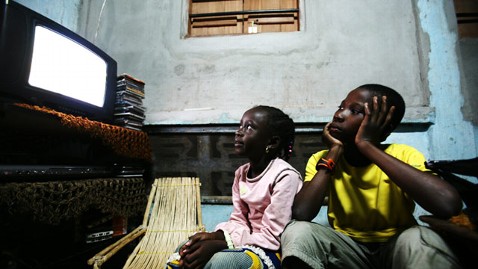
THE village is certainly gone. That’s a good thing too. Our inability to mind our own business meant more often than not the village had nothing good to contribute to our lives.
By Jermain Ndhlovu
How many times have the opinions of aunts and uncles at family round table meetings been less than desirable?
As most parents left children behind to seek greener pastures, the new millenium brought wider freedoms to young people in how they wanted to be raised.
Popular culture has been a boom and all things modern have come about quickly. Growing up and acquiring new tastes or receiving foreign stuff from the Diaspora, we just wanted in.
I am certain that one thing that has been of particular note was how young people in foreign countries behaved and made us seem priestly.
South Africa’s TV series Yizo Yizo (1999) was a huge shocker in Zimbabwe just as much as it was in it’s own homeland. Never had the lives of young people been so brutally and honestly portrayed before on African television. The chilling drama sent shock waves to everyone from the office to high school students.
There were many Papa Actions – the show’s leading bad boy – that sprang up in Bulawayo’s neighbourhoods trying to claim notoriety over all things dangerous. The name Papa Action itself is a moniker for one who does one thing swiftly and with style — from lavish dressing, bedding women, thieving, drugs and so on. Little good is expected from that kind of papa.
- Chamisa under fire over US$120K donation
- Mavhunga puts DeMbare into Chibuku quarterfinals
- Pension funds bet on Cabora Bassa oilfields
- Councils defy govt fire tender directive
Keep Reading
To those in the “lover not a fighter” kind of department, there were your Days Of Our Lives and Bold&The Beautiful for whatever love triangle and who-slept-with-who dramas. How many times was watching Miami Sands with elders uncomfortable at that steamy point? Eyes glued on screen, not a word from anyone?
On the one hand, everyone is pleased Character X has finally bedded Character Y and that a bit of flesh showing is heating up the screen.
Then on the other hand all wish they were either watching TV alone or that the love scene would end quickly!
Uncomfortable moments on prime time led elders to outsource child rearing to a television. Nobody is talking to children about sex, drugs and rock’n’roll besides the TV. Elders will have none of it. They instead bay for the moments when things seem to go wrong and preach about how “they were not like this” at their child’s age. A classic impilo awuyazi (you don’t know life) is a mantra that deserves a slow clap. No teenager knows life – how about telling us about that life?
I recently bumped into a golden quote from the book The Bluest Eye (1970) by African-American writer Toni Morrison; “Adults do not talk to us — they give us directions. They issue orders without providing information.
“When we trip and fall down they glance at us. If we cut or bruise ourselves they ask us if are we crazy. When we catch colds, they shake their heads in disgust at our lack of consideration.
“We know them, we’ve heard them and we’ve seen them. To any young person reading this – don’t EVER be that parent. Ever!”
I recently saw the comical Wayan’s family being interviewed by Oprah and Keenen. The brother who got the family in show business, was lamenting on how black parents tend to be heavyhanded and uncompromising with their children. He further went on to talk about how he and his brothers and sister were raising their kids the way they had wanted to be raised – with a bit of compassion.
I believe that there is no such thing as TMI (too much information) in telling kids about the cycle of life. Easy does it too —there is no need to be a rocket launcher firing away about sex positions and other deep stuff that will just make conversations even more uncomfortable when it’s time for the birds and the bees talk. Oh yes, there exist those tough love and too honest elders!
The education syllabus for instance, starts teaching reproductive health at Grade 6. So teachers at school have it covered, but a touch of home advice will always go a long way; failure to which the TV does and Friday night on e.tv is the least of your worries. Young people are better exposed than that. Jermain Ndhlovu writes in his personal capacity. He can be contacted on [email protected]










